OCTOBER 8TH
OCTOBER 13TH
BTCF Board Member Dr. Gia Marson talks with Goop about helping loved ones with an eating disorder.
Breaking the Chains and NEDA
Breaking the Chains Foundation partnered with NEDA in support of National Eating Disorder Awareness Week on February 26 – March 4th by promoting awareness via a variety of our social media networks, celebrity support, sharing NEDA’s screening tool through our social media platforms, as well as having our own online event through out the week. Also joined NEDA in forming our own team for the Los Angeles NEDA Walk on April 7th, walking and raising funds in support of stopping eating disorders.
GREAT NEWS
The award winning short film “FINDING ALICE” was an Official Selection both as a short film and written word in The Hollywood Dreamz International Film Festival and Writer’s Awards in Las Vegas, August 2017!
UPCOMING NEWS
STAY TUNED! – BTCF YOUNG HOLLYWOOD CAMPAIGN
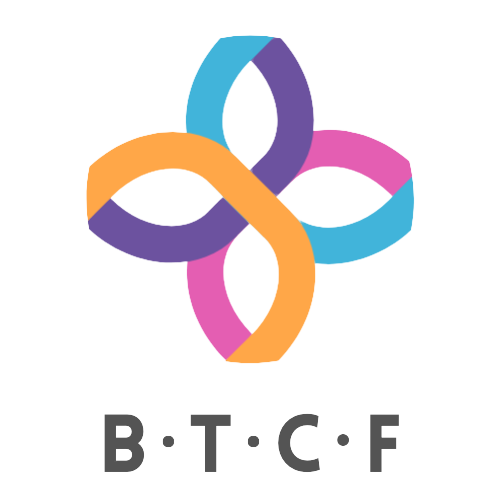

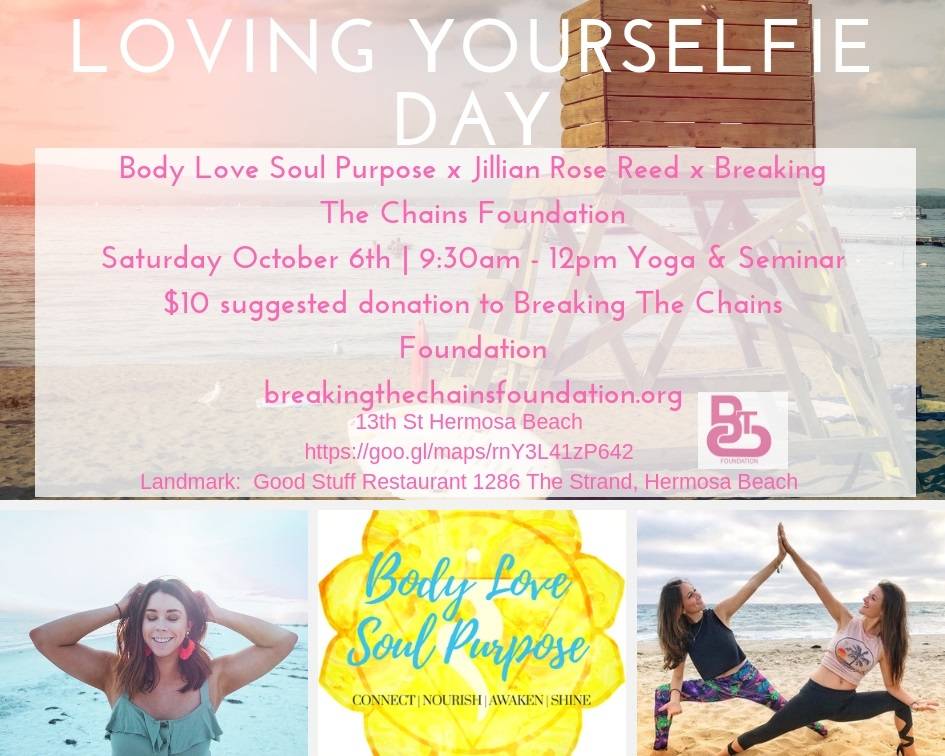
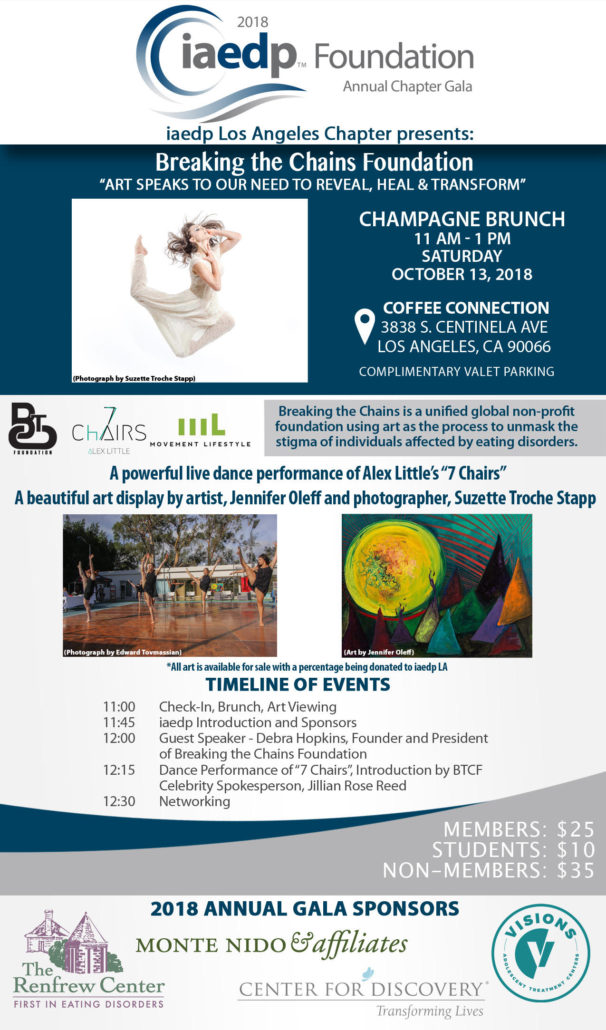
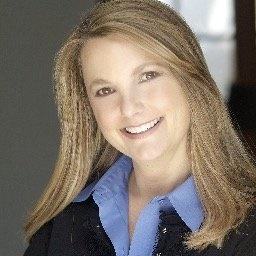
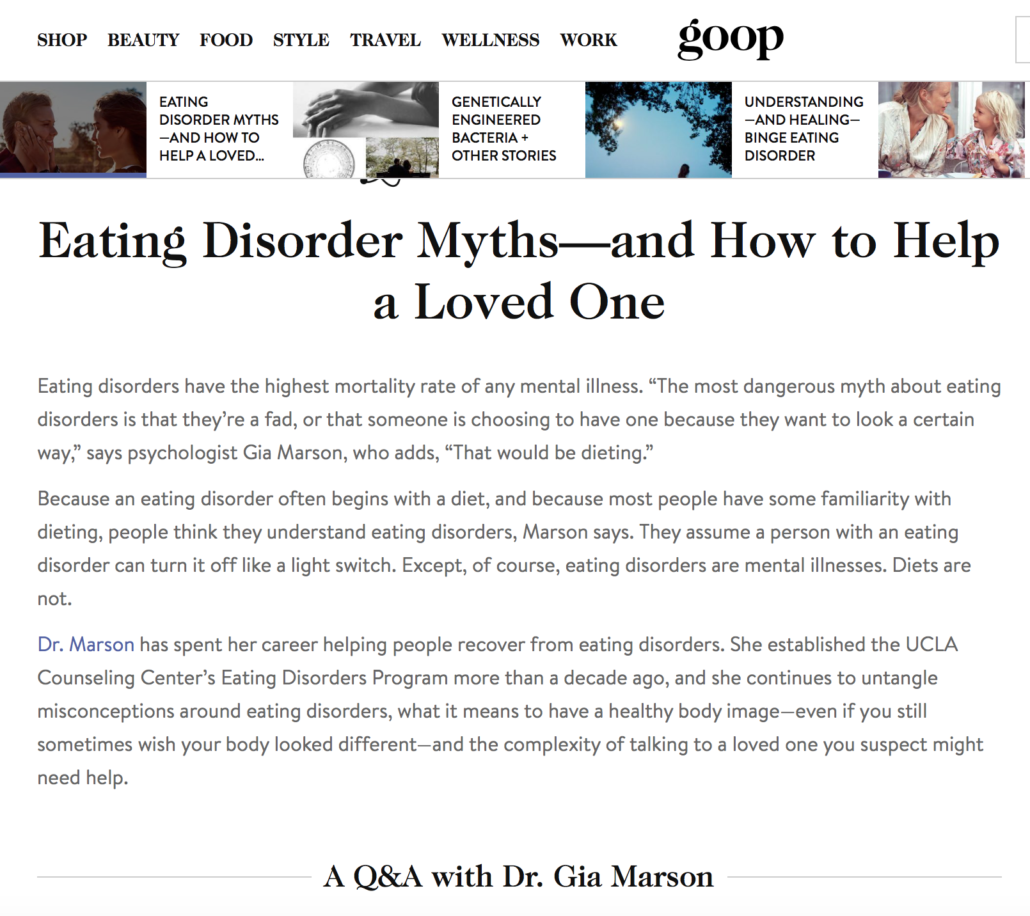
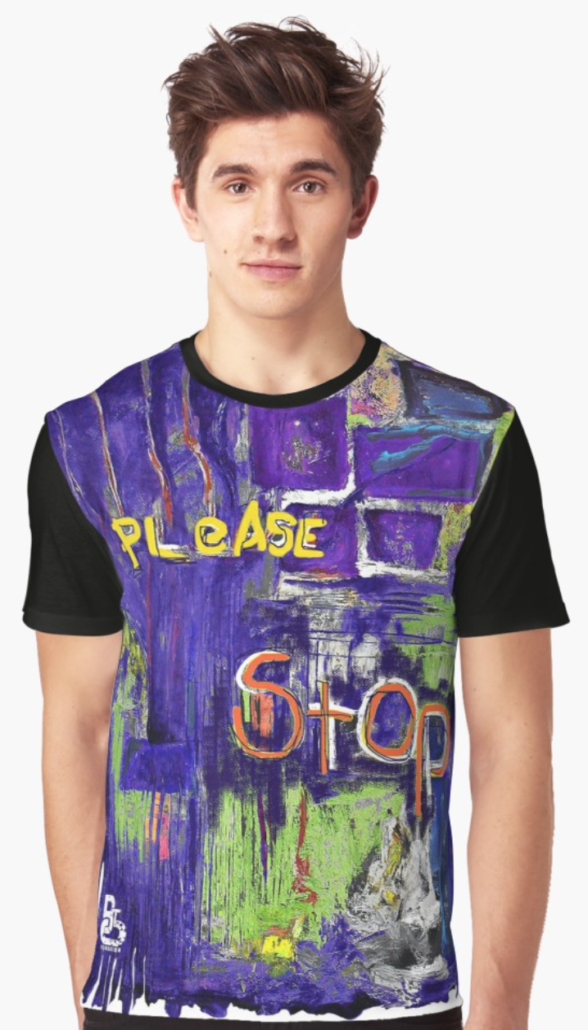

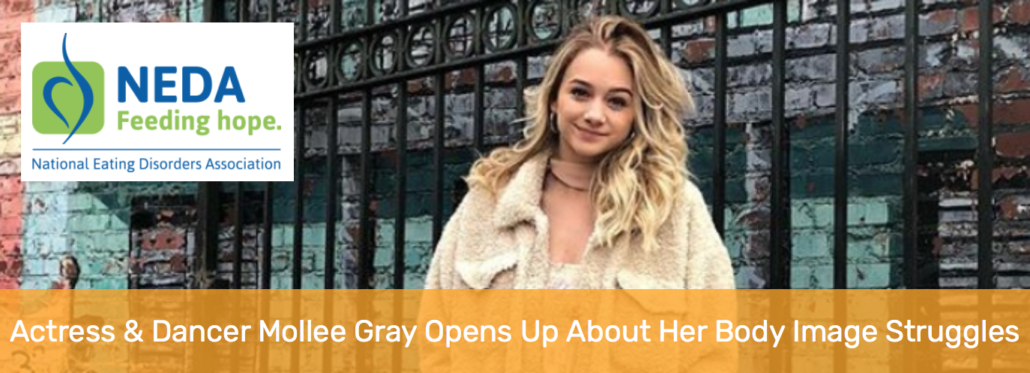
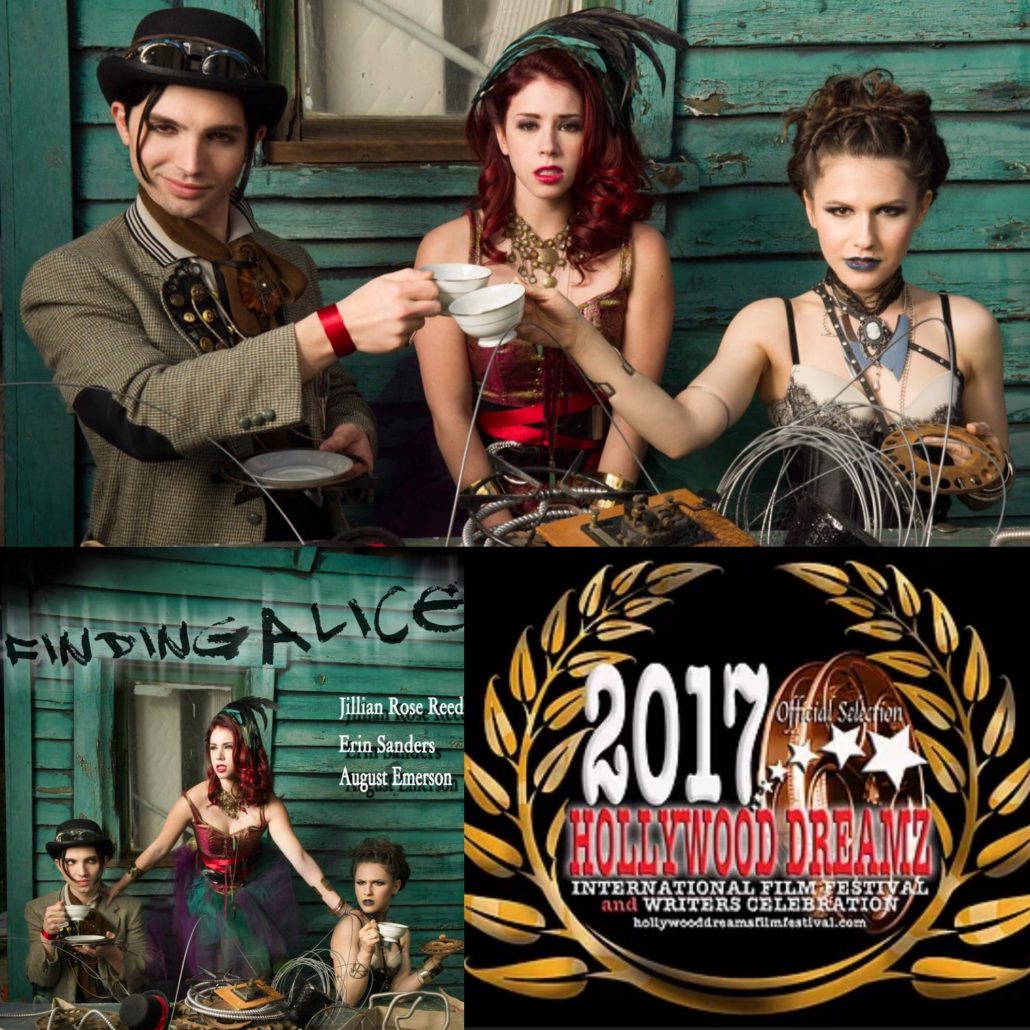
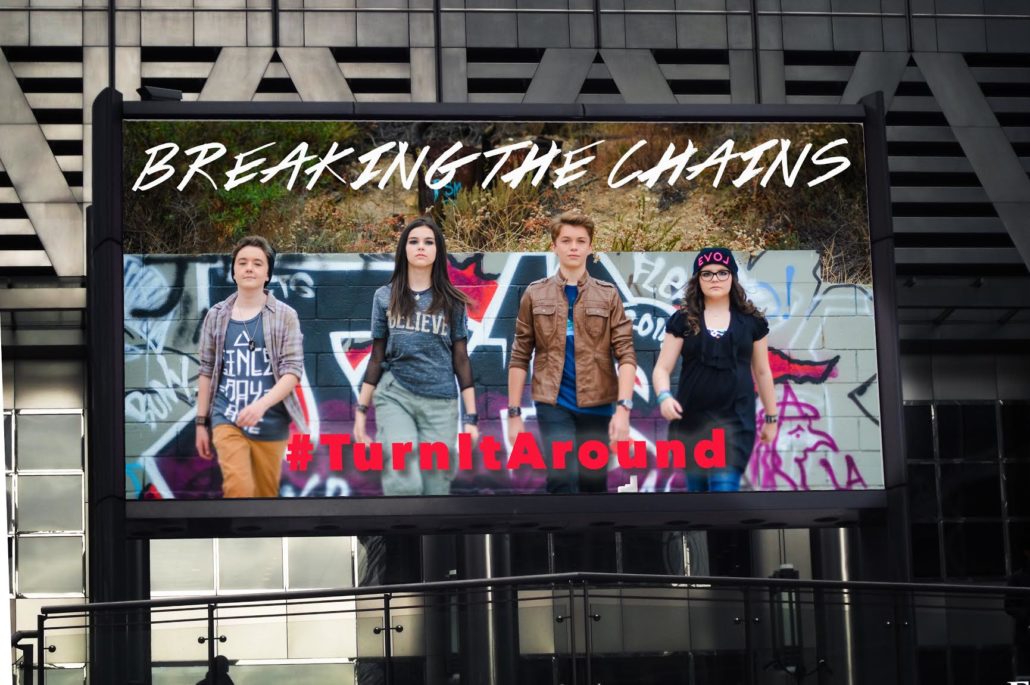



AN INTERVIEW WITH NATHALIE RODRIGUEZ
Artist BlogsAN INTERVIEW WITH NATHALIE RODRIGUEZ
“Your life will not be defined by those who have not lived it, So live.” – Miles Carter
BTCF: How long have you been a photographer and what inspired you to become one?
NATHALIE: I have been a photographer for a little over a year. I received my first camera in the 5th grade and have always desired to express my creativity through photography. Now that I’m 18 and in college, being able to show someone their natural beauty, and watch their confidence grow during sessions has inspired me to keep this journey of photography flowing.
BTCF: Do you have other aspirations with your photography and if so, what are two of them?
NATHALIE: I aspire to take my photography around the world. To learn of different cultures and meet a variety of different people. Every photoshoot is like getting to know someone, as the session begins you learn what it is that suits them, you teach confidence and watch it grow by the end of it. With that being said, I want to do that for so many people around the world. Another aspiration I have is to one day open my own studio and expand my business in photography.
BTCF: Your photographs are wonderful moments in people’s lives. Do your clients come to you with their ideas or is it something you and they come up with together?
NATHALIE: The idea of a shoot depends on the objective. Is it a family shoot? Fashion shoot? Couples shoot? Senior portraits? Whichever one my client comes to me with, I ask for a description on how they’d love their photos to look like, and I research locations, outfits, and even the time the photoshoot will take place. Sometimes I’ll have a client who doesn’t know the exact look they’re going for, so I simply suggest a variety of ideas that I believe they would enjoy.
BTCF: You have many other skills like shooting videos and editing. Is that something you would like to get into more and what things would you like to film?
NATHALIE: I definitely love photography more than anything. Videography is fun and allows to show the world clips through your perspective. I mostly use videography, to show the behind the scenes of photoshoots. Specifically, when it comes to posing, locations, equipment, etc. Potential clients love to see how you work, and this is my way of creatively showing them.
BTCF: We were fortunate to have you use your creative skills with some fun editing for our upcoming interactive online video/workbook program, “How To Love Yourselfie” with Jillian Rose Reed (our Celebrity Spokesperson/Board Member) What drew you to the program?
NATHALIE: Initially as soon as I heard about the program I quickly wanted to help as much as I could. Social Media today influences our society of all ages. “How to love Yourselfie” highlights the impacts that many of us are unconscious of. It’s beautiful to see the efforts of this program and the way it can positively influence people to implement self-care in their life and normalize natural beauty. Social media has created a false narrative through highlight reels, that people praise.
BTCF: What were some of your favorite moments on the HTLYS videos and why?
NATHALIE: I loved the message. As I was editing, I was learning. Every video had a message of its own, backed up by statistics and real-life testimonies that everyone can relate to. I loved that it breaks the stigma of pretending that imperfections aren’t real.
BTCF: BTCF uses all forms of art as a process to unmask the stigma of individuals affected by eating disorders, disordered eating and negative body image. Personal story is one way of doing this. Do you have a personal story that inspires you and how you use it through your photography?
NATALIE: I believe through photography my self-love grew. At the beginning of this creative field, I had to learn how to create a comfortable environment for my clients. Sometimes I work with someone who may deal with insecurity or a lack of self-love. Because of this, I’ve learned in order to break through those barriers I have to show them. I become very silly and act out poses, or state random phrases to get a smile out my client. This results in pictures where they feel beautiful or handsome, where those negative thoughts about themselves simply disappear. However, in order for me to learn how to do this I decided to take on self-portraits. It wasn’t long after that I realized being behind a camera is way easier than being in front of one. As I watch my self-confidence grow through my portraits, I can truly say photography has had a huge impact on my self-love.
BTCF: When you are shooting photos for people, what would you say to a person that you think may be insecure about their body?
NATHALIE: A photographer is more than just clicking a button on a camera. You are responsible for the energy you bring into the session. Before a photoshoot, I always prepare poses and physically show the client how they can be implemented. I state scenarios to capture laughs and smiles. I make sure to show the client how the photos are coming out and as soon as I show them, I love seeing their face bright up and state comments like “Oh my gosh, I didn’t know I can look like that.” Usually after this they open up and nothing brings me more joy than to see their confidence grow.
BTCF: What are three things that are important to you that you share with the people you photograph to help them feel at ease?
NATHALIE: Creating a comfortable, nonjudgmental relationship between the photographer and the client is key. It’s important to me that my clients understand that there are no beauty standards or expectations they need to live up to. They are more than enough already. Additionally, it’s important for my clients to also understand that beauty comes in different shapes and forms, true beauty is being yourself, and expressing yourself despite what anyone has to say. And lastly, its essential for my clients to trust my creative instinct that results in desirable galleries intended to create smiles.
BTCF: What is one thing each that you think social media creates in a positive way and in a negative way?
NATHALIE: Social media can positively affect society through the means of, spreading awareness on a movement or subject, marketing your business, sharing your art, and connecting with family around the world. However, in reality social media has brought negative impacts and has pervaded our world with unrealistic body standards and egotistical morals. People start to worry more about followers, likes, and comments, rather than self-love, or the caring for the people who are truly in their life.
BTCF: You are presently attending college as well as doing your photography. How do you find balance?
NATHALIE: My number way to manage my time with academics and photography is to begin my week filling out my agenda. I specifically prioritize assignments due the soonest and schedule my shoots on the days I don’t have school. Having an agenda allows me to schedule my week and manage my how I use my time.
BTCF: What are your three favorite ways to take care of yourself?
NATHALIE: Understanding when enough is enough. I tend to take on big projects all at once despite how much time I have, so making sure I set different checkpoints for myself is the way to prioritize my mental space. As I mentioned before, utilizing an agenda has provided me with balance in my daily life. Allowing myself to take control over my time, permits me to create time to myself. For example, time to spend with friends or family, or simply sitting down and writing in my journal. Another way I take care of myself is playing piano, it helps me feel grounded and distracts me from any stress.
BTCF: How important is it to you to have support in what you do and can you share one thing that keeps you grounded?
NATHALIE: In all entirety, choosing to continue working in photography was an independent decision. Photography has provided purpose and self-fulfillment. However, receiving support on my photos surely motivates me to continue creating. It’s important to not find your validation through others, instead realize the worth of your own work. One thing that keeps grounded, is to understand that we are all at different points of our lives and comparing ourselves won’t do us any good.
AN INTERVIEW WITH ARIELLE BODENHAUSEN
Artist Blogs“Leave your imprint to stand beyond your existence” -Abhisarika
Valerie Noelle @theeternalchild
BTCF: As we all know, we are in an interesting time in our world and finding a silver lining to it all can be challenging. As a person who is about growth and renewal, what are some of your silver lining moments? What have been a couple of your challenges?
ARIE: Definitely an interesting time. This silver lining moment is something I would have never expected to re-visit in my life, as I would have thought I wouldn’t need to. I’ve been able to re-visit my boredom, in turn… notice how my creativity and artistry doesn’t always have to be for others to experience, it’s most important purpose is that I express it and create it. Impressive or not, I have found that being bored I end up creating for fun and self-pleasure than for anyone else. It’s almost like being a kid again.
Challenges: 1. remembering my worth without the “accomplishments” / “praises” from others. 2. Having grace for myself for not being the busy bee I normally am.
BTCF: You are not only an accomplished dancer, but also an actress, choreographer, writer, and teacher of dance, yoga, and Pilates. In “normal” times, how do you balance it all?
ARIE: Ha-ha how do I balance it all? I honestly am grateful that I get to do them all, it wouldn’t happen if I didn’t show up passionately to each one. I don’t have every single one of those happening at once, but I do have to practice the word “No” to keep myself sane and committed to the projects I have said “yes” to. And my car sometimes (most of the time) looks like a closet.
BTCF: We are so blessed to have worked with you since 2016. What drew you to BTCF and why?
ARIE: Kathryn McCormick first introduced me to Alex, which was my connection to BTCF. I was told we would be performing at an event to bring awareness and support to eating disorders within the arts. I have struggled with an eating disorder through my dancing career, so to be able to perform AGAINST that, SIGN ME UP!
BTCF: As one of our main OG performers for Alex Little’s “7 Chairs” dance performance, you have continuously brought your immense talent and a different story to each of the performances. Can you share how you go about it each time and the scope of your motivation for such?
ARIE: I love performing this piece! I miss it and look forward to doing it again someday. The most impactful way to show up for “7 Chairs”, personally is to walk into the rehearsal not only with an open heart to talk, but with an open heart to listen. The first part of rehearsal we share with the group about life currently… the good, the bad, the sad etc. From that point on the movement and story line is created to highlight each individual’s story. The feeling to share the stage with others that you know are fully supporting your story, and you are supporting theirs… there is truly nothing like it. It’s so unique and vulnerable for all of us in the piece. I have done the piece about 5 times I believe and not once has it ever felt similar to the last time. That is an incredible feeling. And one I’m grateful to be a part of.
BTCF: As you know, BTCF uses all forms of art as a process to unmask the stigma of those struggling with eating disorders, disordered eating, and a variety of body image relationships as well as to inspire those who struggle and their loved ones to seek help. How do you use your dance to express some of your journey?
ARIE: Being a part of “7 Chairs” was the spark that has encouraged me to be bold in the way I am a teacher. Being a dance teacher, I notice many moments of kids and teenagers struggling while looking in the mirror or comparing to their peers. I am grateful to be there and share my own journey, because I remember that all too clearly, in hopes that I can help them learn ways to love and appreciate the body they are in.
For my personal dancing career, I express my journey by showing up confidently and grateful for my body. A body I used to be so ashamed of and would get mad at for (what I thought was) holding me back from the jobs I dreamt of. I’m not perfect on my journey but I am aware of the negativity and hurtful thoughts that can pull me down in a heartbeat. I try to notice them and correct those thoughts as quickly as possible. I remind myself this body has been a gift and can do some beautiful things… my movement is unique to me, can’t hide that anymore. SO.. showing up to the audition, class, meeting, job is the way I express my body image struggle.
BTCF: There are two things you recently shared with us – “At times I feel my creative mind on fire and others I find emptiness. The grace it takes for an artist to deal with barriers and roadblocks is something I am sitting with now.” Can you share the meaning with our readers?
ARIE: Yes, I wrote this wanting to share that this new pace has taught a new way of navigating “being an artist”. What do you do when you are a go, go, go type of person… and you aren’t able to access that? For me, I got a more intimate look into the way I deal with the ebbs and flows of creating. When normally I would express myself daily, through classes, teaching, auditioning, etc. I had very little I did alone. Now, to be forced to sit alone and still have a desire to dance or act, I had to learn patience for myself. Learn grace for myself. There are times I feel like I’m completely on fire with ideas, and times I’m sitting at a roadblock… and you know what, I’m finding that to be okay. I’m finding more appreciation for what I do create and dream up, creating from an authentic place will ALWAYS be a gift. Even if it’s not as often as I’m used to.
BTCF: Is there a time during your own eating disorder that you can share with us and how through your artistry, it allowed you to break free? What did that look like for you?
ARIE: Acting freed me from hating my body. Acting was the first place I didn’t see the “right” body size, but I saw that the story came from within. Came from the eyes and the way you listened. You were never alone, which means you were always needed for the story. Acting has taught me a new way of dancing for myself. Story first!
BTCF: How has the pandemic affected you in your personal times and as an artist?
ARIE: I think they are both being affected greatly. My personal life and my artist life are very intertwined. Like I’ve mentioned I’m a social butterfly… I’m an extrovert, so being amongst others, especially while doing what we love, brings me life I don’t know how to replicate. But my sweet boyfriend Tyler encouraged me to use his loft as a studio. That became my creating world, something I will forever be grateful for.
BTCF: Eating disorders are on a rise during the pandemic. Can you share a couple of your own tips that provide you with some peace of mind?
ARIE: GET OUTSIDE! Nature is my answer to most things. A hike and Podcast or music will ground me in the present and help me stay grateful. Gratitude normally will pull me out of slumps and negative thoughts which have led to my eating disorder. Also, reaching out to someone close to you for a phone call or a safe meet up. God designed us to be in relationship with others… I believe there’s a reason for that.
BTCF: You have been a wonderful voice and inspiration for BTCF on many occasions. We love having you as an artist ambassador. How important is community to you? What does that mean to you?
ARIE: Might just be the most important thing. Like I said above, God created us to be in relationship with others. That’s community. To feel like you are accepted and have the ability to accept others is one of life’s greatest blessings. I am 28 years old and have many different communities of people in my life, they aren’t all my best friends but they are all very important to me, they have taught me lessons, laughed with me, cried with me, encouraged me, and accepted me. I also want to say I have been in a time where I’ve been VERY lonely, and felt like my community was light years away… if that’s you, I want to encourage you to look for one… One person YOU can make smile, write a letter to and to focus on accepting them, you’ll be shocked how close your community really is. It’s taken me years to have relationships like I do today. I love that I get to love them, and in return accept their love. That’s community.
BTCF: You have said that your artistry comes in many forms. Can you share what those are and how you connect with them, what each inspire and how do you allow your art to shine?
ARIE: I’m a dancer, actress, dance teacher, and Pilates instructor. Ultimately, I have a passion for telling stories as authentically as possible. Dance and acting both hold a special place in my life… Hopping into characters shoes and shedding light on their existence is powerful. It gives you a greater appreciation and love for humanity. Being a dance teacher, I love to inspire my students to learn their way of telling stories, being in that process is a blessing I am grateful to have in my life. Being a Pilates instructor, I get to help my clients feel alive in their body. Giving them confidence to take on their days as healthfully as possible. All though that is not a story I get to tell, I get to be in their process of bettering themselves, again a blessing I am grateful for.
BTCF: We had a wonderful opportunity to co-produce with you a dream of yours, “Beyond Existence: Body”. How would you describe what this is and where it came from? Was it a healing experience for you?
ARIE: Beyond Existence was something that sparked in my mind years ago as I was trying to figure out a fun way to teach adults dance. I decided to add paint to dancing. What happened was greater than I expected. I noticed how dance could become a visual art, something that is left for others to interpret later. I believe that in everything we do we leave imprints. This experience of filling a room full of my strokes, letting colors have unique meanings, textures, and story inspire moment by moment, all while being filmed. In briefs and a bra top, I felt exposed and nervous that the body I have once shamed is now exposed as my instrument, paintbrush. As I watched the paint grow on the walls, movement by movement, my heart began to fill with such appreciation for what I have to offer to this world, to this space, to this moment. SO was it healing. Absolutely! I can’t wait to invite others into this experience.
BTCF: How do you view “your” art? What does being an artist mean to you and the impact it has on others?
ARIE: My art is vulnerable and sometimes from the shadows of my heart. Although the process of creating is healing and empowering, I often times pull from pains in my past or present. I hope that my art lands on others as something they can connect to, not feel alone in, or give hope to keep moving forward.
BTCF: How can people find out more about your classes that you offer?
ARIE: As of right now through the pandemic, I have been focusing on virtual Pilates classes and dance classes. If you ever want to dance or do Pilates sessions the best way to reach out or get connected is through my insta @_arie_b or email arie.bodenhausen@gmail.com
AN INTERVIEW WITH TRINITY ROSE
Artist Blogs“It is only with the heart that one can see rightly; what is essential is invisible to the eye.”
Antoine de Saint-Exupéry
BTCF: Your voice is very soulful and rich. There is a pop-vibe to some of your music and yet an R&B sound as well as an indy vibe. How would you describe yourself as an artist?
TRINITY ROSE: It’s funny that you notice how much my genres kind of blend. I love music a lot and there’s so many amazing parts of music that I don’t want to be restricted to. My songs Morning Text and Coughing Up Flowers are so different because I found inspiration in different kinds of styles. I would describe myself in all the ways you did and I hope I can be described in more ways in the future!
BTCF: Do you write your own music? Listening to Coughing Up Flowers is beyond! “Who is the person behind this mirror” in your lyric?
TRINITY ROSE: I do write my own music, but I really love co-writing and having other people’s input on my own songs. I wrote Coughing Up Flowers with Casey Malanuk and I can’t really remember who wrote that line. The way I see that person is myself as I’m looking in the mirror. It’s more that I don’t recognize myself with such strong, irrational feelings for another person and the moment of clarity I’m experiencing at that moment is entirely new.
BTCF: What was it like to be chosen as one of eight teen vocal performers in the country to attend a week-long intensive program, hosted by The GRAMMY Foundation and USC Thornton School of Music?
TRINITY ROSE: It was amazing being chosen for Grammy Camp two times in my high school career. I learned so much from people like Chris Sampson and other faculty members that taught all of us. I met tons of people I still work with today and I couldn’t have made those bonds without that camp.
BTCF: You recently released your single “Morning Text”. Can you share what it’s about and the inspiration behind it?
TRINITY ROSE: I wrote Morning Text with my co-writer Steve Damar after a gig that I did nearby. The inspiration came from this one time I was getting attention from a guy I wasn’t really into and I didn’t know how to tell him I didn’t want something serious. The term ‘morning text’ is such a flirty new thing for teenagers like me and I thought drawing inspiration from that concept would be perfect!
BTCF: When collaborating with other artists, what connects you the most and why?
TRINITY ROSE: When I collaborate with another person, I usually have to be connected through understanding of each other and almost being on the same wavelength. I get along with some people, but that doesn’t mean it makes for a good collaboration. When I’m writing with them, if they’re completely open and throw out ideas unashamedly I absolutely adore them.
BTCF: Are your songs based on personal story or real life around you or both?
TRINITY ROSE: My songs are based on my own personal experiences usually, but concepts and things I observe are almost always at the core of any song I write. I wrote a ton of personal songs for myself but most of the songs I’ve released aren’t based off of anything besides a concept.
BTCF: At 13 years of age, you were on Season 12 of “The Voice”. Being so young, were there challenges that seemed to present themselves more than others? If so, can you share what they were?
TRINITY ROSE: I think being 13 years old on a reality TV show was a lot for me. While it introduced me to a lot of stress, it was actually really beneficial to see a professional show and singers in front of me. School was difficult since I had to leave for a month to go across the country, but I also had plenty of kids my age to hang out with.
BTCF: We were thrilled to have you perform in one of our music live streams to share personal story and connect with others through music. What drew you to want to be a part of our mission and the community we serve?
TRINITY ROSE: I greatly admire the work of BTFC and seeing the positive message to younger people that are being so affected by the world around them is so incredibly important. As someone who was a very young girl not too long ago, this kind of community would’ve been perfect for me. Communicating through music is also something that I strongly believe in and what a lot of people can relate to no matter what age you are.
BTCF: What are three things that you do or enjoy helping ground yourself and bring you peace of mind?
TRINITY ROSE: One thing I do is watch something that’ll make me laugh or smile, like my favorite shows or youtubers. Another is playing my guitar and writing bare lyrics that don’t have to become a published or performed song. Although basic, if I’m panicking, I always make sure to do breathing exercises and close my eyes.
BTCF: What type of music training have you had and if so, at what age did you start? What instruments do you play?
TRINITY ROSE: My vocal training started when I was about seven years old and I picked up guitar a couple years later. I played ukulele and a lot of piano when I was younger on and off but guitar was what I really stuck with.
BTCF: What do you feel has been your greatest accomplishment so far and why?
TRINITY ROSE: I think my greatest accomplishment so far in my life was my song Love is the Only River. That song and music video was one of the most important projects I’ve ever worked on and creating it with Ian Sloane and getting all the people together was very rewarding. It got me a full scholarship to Berklee 5-Week Summer season by winning the international songwriting competition and many kids in elementary schools have performed it.
BTCF: BTCF uses all forms of art to inspire healing, support, recovery, and community for those affected by eating disorders and negative body image relationships. We believe in the healing elements that various art genres provide. How is music healing to you?
TRINITY ROSE: Music has healed me since I was very young. I think it’s our universal language and you can spread love and good messages through it incredibly easily. Young people are so affected by media in negative ways and to have a chance to give a positive message through my music is my way of healing myself and hopefully other people.
BTCF: Is there a process you go through when writing and creating your music? If so, do you have a couple of tips to young artists?
TRINITY ROSE: My process tends to change but I can give a couple of tips that might help younger artists. The first thing I would do is learn an instrument or find tracks online that are free that you can use and try writing to them. I would also read as much as you can and look into poetry and things that really interest you. The thing about creating your own music is that it can be whatever you want it to be.
BTCF: Do you have any advice to youth your age that are trying to navigate through a social media world while still discovering who they are?
TRINITY ROSE: As a younger person myself I think the media is an important thing but also a dangerous thing. I’ve seen a lot of my friends and other people online get so affected by the harmful nature of people’s words when they don’t think about what they’re saying or what they’re presenting. I would try to find activities that really interest you outside of the internet and find friends that understand you and will always be there if you’re feeling defeated by how the world treats you.
BTCF: Is there anything else you would like to share?
TRINITY ROSE: If any of the people who follow me or listen to my music ever need a safe space, I hope that I can provide it. I always strive to make people feel better and be the best example of myself that I can give to younger people. I’m not perfect myself and I want people to know that and see that they don’t have to be perfect either.
To Learn More about Trinity Rose, please click below and follow her on her:
Instagram @trinityroseofficial
Youtube